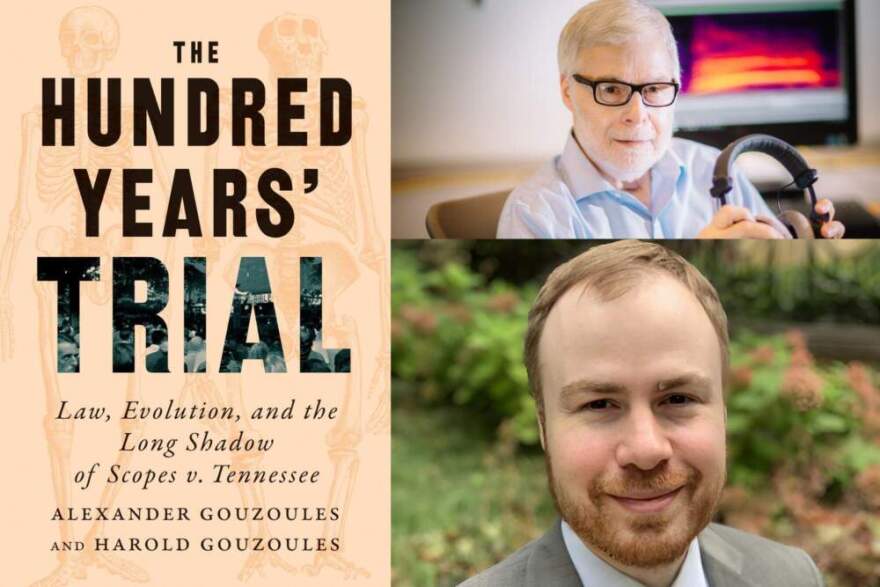
One hundred years ago today — July 21, 1925 — the Scopes trial wrapped up in Dayton, Tennessee. Teacher John Scopes was convicted and fined $100 for violating a Tennessee law that banned the teaching of evolution because it contradicted the Bible. The trial was the first to be broadcast live on the radio, and the 1960 movie “Inherit the Wind” has colored how people remember the trial and the clashes at its center.
Here & Now‘s Scott Tong speaks with the authors on a new book, “The Hundred Years’ Trial: Law, Evolution, and the Long Shadow of Scopes v. Tennessee,” Alexander Gouzoules and Harold Gouzoules. Alexander Gouzoules is a professor at the University of Missouri School of Law, and Harold Gouzoules is an evolutionary biologist and professor of psychology at Emory University.
Book excerpt: ‘The Hundred Years’ Trial’
By Alexander Gouzoules and Harold Gouzoules
A vanishingly small number of court cases are still remembered, at least outside the realm of legal scholarship and education, a hundred years after their conclusion. A few major Supreme Court decisions make the cut—the foundational Marbury v. Madison and the notorious Plessy v. Ferguson are usually taught and sometimes remembered as significant parts of American history. Some infamous murder cases make the cut as well. The trials of Bruno Hauptmann (the killer of the Lindbergh baby), Leon Czolgosz (the assassin of President McKinley), or Leopold and Loeb (brutal teenage murderers from elite families)retain some historical interest independent of the underlying actions of the defendants. These are all exceptions, not the norm. The 1925 trial of Tennessee high school teacher John Scopes, charged under a new statute criminalizing the teaching of evolution in a public school, is a curious member of this exclusive list. A misdemeanor trial in a small town courtroom, resulting in a hundred-dollar fine later set aside on a technicality, would seem destined for historical irrelevance. Nonetheless, the case remains “a staple in every US history survey class.” It is regularly examined as background in modern court decisions and legislative debate, especially in disputes involving religion and education. It has also served as a tailor-made analogy for contemporary clashes over the science of climate change and the medical effectiveness of vaccines. The media, too, continues to invoke the case, having billed several subsequent trials—and there have been many involving the proper place of evolution in school curricula—as “Scopes II.”
Excerpted from “The Hundred Years’ Trial: Law, Evolution, and the Long Shadow of Scopes v. Tennessee” by Alexander Gouzoules and Harold Gouzoules. Copyright 2025. Published with permission of Johns Hopkins University Press.
This article was originally published on WBUR.org.
Copyright 2025 WBUR


